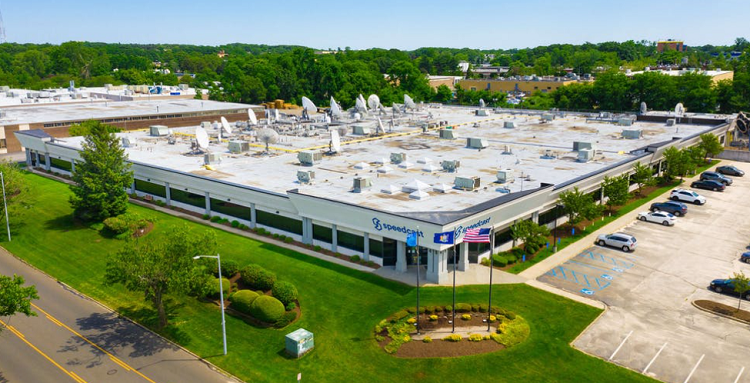Some Known Factual Statements About Hauppauge Ny
Table of Contents8 Easy Facts About Hauppauge Ny Map ShownExamine This Report on Hauppauge Ny Homes For SaleA Biased View of Hauppauge Ny PronunciationThe Best Strategy To Use For Hauppauge Ny RestaurantsHauppauge Ny County for Beginners

A dramatic increase in office construction with some buildings exceeding over 1,000,000 square feet, changed the Nassau horizon and established it as a major place of white collar employment. Nassau County family income is in the top ten percent of the nation with the number one retail sales per household.
Suffolk County comprises 1000 square miles of eastern two-thirds of Long Island. Long Island itself extends 120 miles into the Atlantic Ocean, East from New York City. The distance from the Nassau County border to Montauk Point is 86 miles. At Suffolk County's widest point the distance from Long Island Sound to the southern shore is 26 miles.

The Single Strategy To Use For Hauppauge Ny Weather
From the first years of colonization, the heavily wooded forests provided wood which Long Islanders cut and shipped as cordwood and as board footage for local ship and home builders. As the land was cleared, the rich acreage was farmed. Fishing and shipbuilding were other early industries. Until the 1850s whaling was an important source of income.
Its quaint historic villages, rocky north shore beaches and calm waters, the white sand and breakers off Fire Island, and the dependable winds and safe harbors for sailing make tourism a major Suffolk County industry. In the 1930s the County became the site of large-scale suppliers to the U.S - hauppauge ny hotels. defense and aerospace industries
After World War I, Brookhaven National Laboratory, a research institution administered by Associated Universities Inc. and funded by the Federal Government, was established on the site of Camp Upton in Yaphank. Its scientists develop peaceful uses of atomic energy. High technology centers make Suffolk County sixth in the nation in the production of radio and television communications equipment and aircraft manufacture.
In 1955, mass-produced housing developments, along with new major institutions of learning, contributed toSuffolk County's population explosion - hauppauge ny to nyc. Foremost among the latter is the State University of New York at Stony Brook, which opened on a 1000-acre campus in 1962. Its Health Science Center and 18-story University Hospital became Long Island's tallest buildings in 1976
Rumored Buzz on Hauppauge Ny
Listen to this article In 1964, the 1,000 acres now occupied by the Hauppauge Industrial Park seemed like the end of the world – it was where the Long Island Expressway ended. The land was also “an antenna farm, full of monster antennas used for ship-to-shore and overseas communication before and after World War II,” recalls Jack Kulka, one of the early developers whose firm, Kulka Contracting, is still based have a peek at these guys there.
That’s how much sand was hauled away to form the cement used to build Sunrise Highway. Today’s “park” is home to 1,300 business and 55,000 employees, making it the largest such complex east of the Mississippi River and the second largest one in the country. It has redefined Suffolk County development and stands as a rare example of civic planning on Long Island.
“There’s superb access from all points of the compass, and I thought it the logical place for industrial development – a planned industrial park.” There were no models to follow. In 1960, Suffolk County Executive H. Lee Dennison attended a meeting and heard the idea. He was impressed with Koppelman – and vice-versa – and Koppelman was made head of here are the findings the county’s new planning department.
Getting My Hauppauge Ny Weather To Work
They were soon joined by Jerry Wolkoff, Max Marcus and others. The development gained momentum because industrial land was more valuable than residential land at that point, says Bill Greiner, president of Greiner-Maltz real estate. And because the area was somewhat isolated from residential areas, there was “no opposition, no one to get up in arms about having something like that in their back yards,” he adds.
N. Klein, who’d become Smithtown supervisor in 1964. “I said if they were crazy enough to commit that kind of investment I was crazy enough to make it happen,” Klein says of what is now known as the John V. N. Klein Hauppauge Industrial Park. “It was really a pioneering effort – industrial parks of any kind were unknown, and article source one of that magnitude was almost unthinkable.
At first, the project looked to be far from a sure thing (hauppauge ny county). “The builders and developers who came out here took a tremendous amount of risk,” says Kulka. “There were no roads, no infrastructure, no charge basins when we started.” At least getting power from the Long Island Lighting Co
The Facts About Hauppauge Ny Revealed
Wolkoff, president of Heartland Development Corp., says getting the first tenants was not an easy sell. “We’d induce them price-wise with better deals, and a little more schmaltz in the buildings.” Kulka says he’d tell prospects they could go another 10 minutes on the expressway and buy land for only $2,500 per acre.
“We like to get properties in that area. It has a lot of pluses, and a planned industrial park tends to keep its value.” The price per acre is now in the $500,000-per-acre range, but little open construction space remains – it’s all further east. Over time, occupants have in general gone from manufacturing concerns to warehousing-distribution centers and expanded office space.